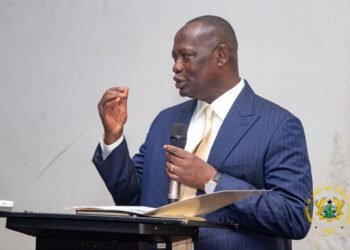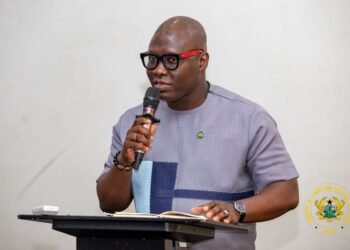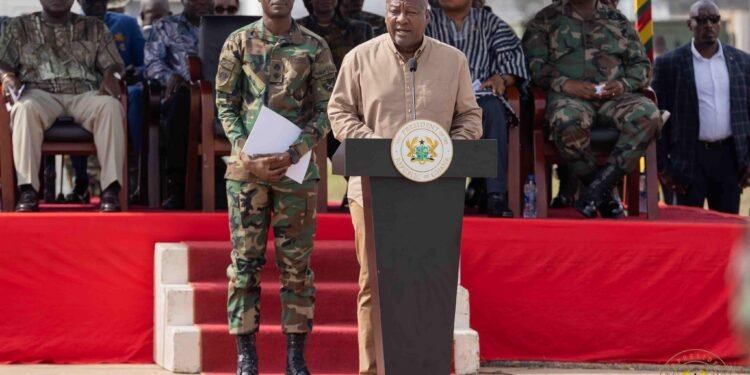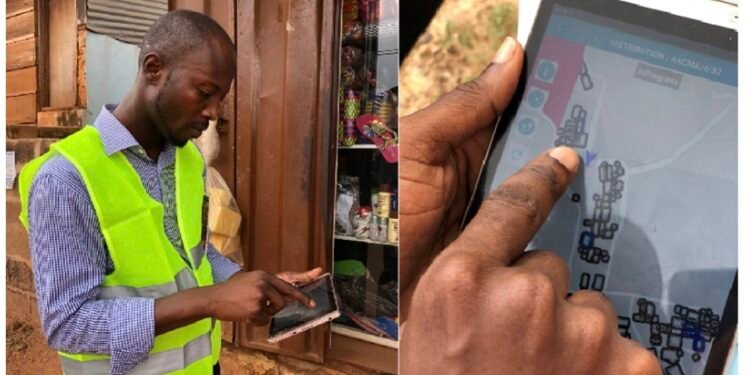IMANI Africa and a coalition of oversight institutions are demanding urgent action from the government following revelations of widespread fiscal leakages and governance breakdowns in Ghana’s flagship Gold-for-Oil (G4O) programme.
A confidential international forensic risk assessment has revealed that the initiative, launched to stabilise foreign exchange reserves and reduce fuel costs, was compromised by systemic vulnerabilities that created deliberate avenues for illicit enrichment and massive revenue losses.
The report, which triangulated data from the National Petroleum Authority (NPA), Bulk Oil Storage and Transportation Company (BOST), and the Customs Division, uncovered what it described as an “architecture of obfuscation” that enabled opacity, preferential access, and structural loopholes.
According to the review, the gold side of the G4O programme lacked fundamental governance structures. No binding contracts existed between the Bank of Ghana (BoG) and the Precious Minerals Marketing Company (PMMC).
This absence of legal frameworks created space for weak pricing controls, inconsistent use of LBMA benchmarks, and a lack of independent oversight in valuing gold.
It further noted that the Bank of Ghana applied discretionary exchange rates, opening opportunities for arbitrage and hidden value transfers.
In addition, mandatory gold delivery quotas fostered smuggling and manipulation of quality, diverting real value away from the state.
The forensic assessment concluded that these were not simple administrative lapses. Rather, they represented “a deliberate architecture of obfuscation designed to frustrate oversight, conceal leakage, and undermine accountability.”
Exploiting Structural Loopholes

The report also raised concerns about the role of certain former BOST officials and an allied company allegedly central to schemes exploiting the G4O programme.
Evidence pointed to undisclosed offshore assets, potential trade-based money laundering, and breaches of fiduciary duty, linking these actors to significant financial malfeasance.
IMANI Africa noted that these findings validated its long-held position that the G4O programme was highly susceptible to abuse due to its lack of transparency.
Franklin Cudjoe, the Founding President of IMANI Africa, stated that a recent forensic assessment confirmed IMANI’s longstanding concerns, indicating that the Gold-for-Oil programme was not just marked by incompetence but had been systematically weaponised against the state.
“The convergence of opaque supplier selection, missing audit trails, and deliberate regulatory blind spots has turned a purported stabilisation scheme into a sophisticated conduit for illicit financial flows and grand corruption.”
Franklin Cudjoe, the Founding President of IMANI Africa

The forensic analysis found that while approximately GHS 7.5 billion in import tax exemptions were lawfully granted, poor reconciliation mechanisms left the state exposed to losses estimated at GHS 7.2 billion.
Critical anomalies included missing documentation, with some cargoes imported without corresponding BOST receipts, as well as products delivered at depots without proper customs declarations.
The report also highlighted BOST’s dominant role in controlling cargoes, which amplified systemic risks and created opportunities for diversion outside the official tax net.
The review flagged all international suppliers involved in the programme as high-risk actors, citing opaque ownership structures and links to money-laundering networks and sanction-sensitive trading in jurisdictions such as Dubai, Cyprus, and Switzerland.
This not only exposed Ghana to financial losses but also increased its vulnerability to reputational damage in global financial and commodity markets.
Strong Reactions from Experts

Prominent economist Dr. Ishmael Evans Yamson, Chair of Ishmael Yamson & Associates and the recently held National Economic Dialogue, described the revelations as “frightening.”
“This is one of many initiatives often presented as solutions to Ghana’s economic woes, but in reality, designed to enrich a few whiles worsening our problems.
“The people and companies involved in this brazen attack on Ghana’s future prosperity must not go unpunished.”
Dr. Ishmael Evans Yamson, Chair of Ishmael Yamson & Associates
IMANI’s Honorary Vice President Bright Simons added that the programme was a textbook example of political deception.
“We have used the term ‘state enchantment’ to characterise this truth.
“The grand pageantry around using forex earned from gold exports to import refined fuel was nothing more than a smokescreen. It was designed to hide shady underhand dealings and distract citizens from following the money.”
IMANI’s Honorary Vice President Bright Simons
In response, IMANI Africa and its partners are demanding immediate action, beginning with a comprehensive forensic audit tracing every vessel and ounce of gold tied to the G4O programme.
They further called for the recovery of lost revenues through retroactive tax assessments and criminal prosecutions of culpable actors under anti-money laundering and procurement laws.
Transparency, they said, must also be institutionalised, with the “quarterly publication of all contracts, pricing benchmarks, and reconciliation reports subject to independent audit.”
A Test of Political Will

For IMANI, the G4O scandal is more than a fiscal issue, it is a test of Ghana’s institutional resilience and political will to enforce accountability.
“Delay in enforcing accountability is complicity.
“The time for decisive action to recover lost revenues, restore institutional integrity, and hold the architects of this scheme to account is now.”
IMANI Africa
The findings have been formally lodged with oversight and law enforcement agencies, setting the stage for what could become one of Ghana’s most high-profile accountability battles in recent history.
READ ALSO: Market Cheers as Ghana’s Treasury Auction Breaks Four-Week Drought with 15.8% Oversubscription























